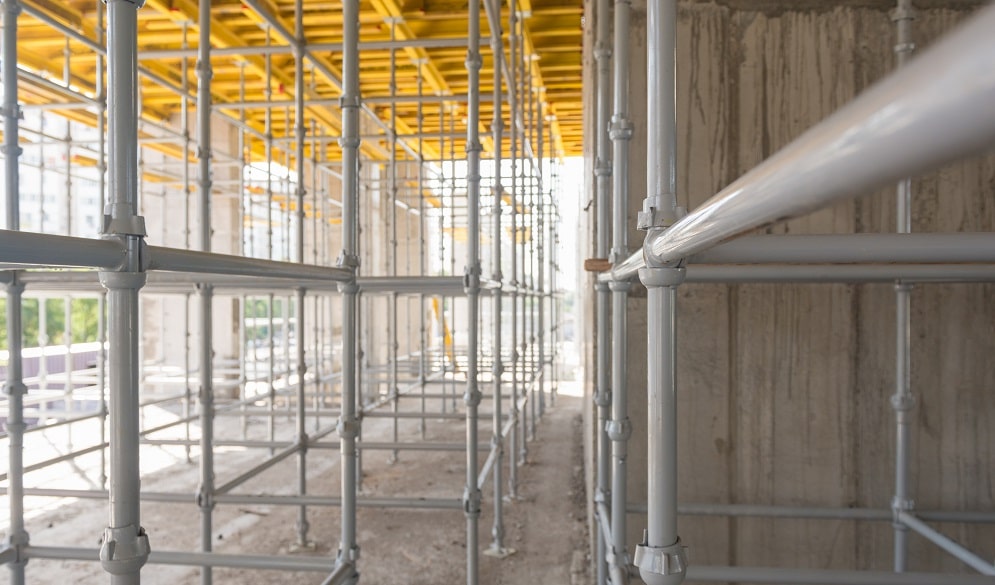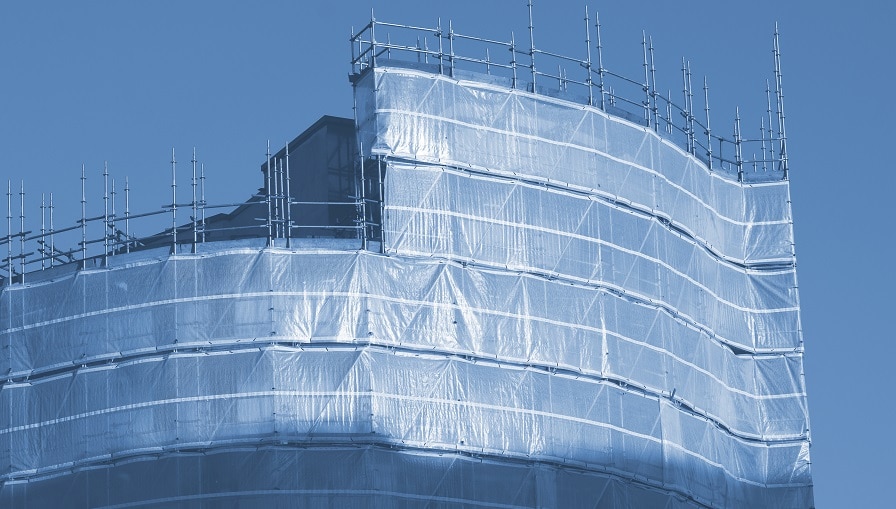Construction workers are exposed to numerous dangers, accidents, and injuries each day. The nature of construction work increases the likelihood of workplace injuries for construction workers than workers in other industries. In the figures recently released by the HSE, it is reported that most workplace fatalities occur in the construction industry, with an average death rate of 30 every year. This goes to demonstrate that the construction industry does suffer the highest accident rates. Although not all accidents are fatal, protection is crucial at all times. You must take the right protective measures to keep yourself safe while on site. Compiled below are our 12 best tips on how you can avoid accidents and injury as a construction worker.
1. Keep away from operating machinery
During breaks, it is normal for workers to form a cluster in the common area. This can be dangerous if there is operating machinery nearby. While chances are nothing will happen, it is best to stay away from such locations and stay safe. It is recommended that you avoid machinery that is in use.
2. Inspect equipment and tools regularly
As a construction worker, you rely on your tools and equipment to effectively get your job done. Faulty equipment can lead to serious injuries during operations. So make sure you regularly check the tools and equipment you use to verify that they are in good shape. It is part of your job to identify defective equipment and let the right people know about it.
3. Always have PPE on
You must put on the necessary Personal Protective Equipment (PPE) at all times for your work. This is possibly the best and most affordable way to prevent injuries and stay safe on construction sites. In the event of an accident, PPE is your last line of defence. At the very minimum, the basic PPE gear must contain a safety helmet, safety boots, eye protection, hand gloves, and high-visibility clothing. Use noise-cancelling earmuffs, chemical suits and respiratory masks for added protection. To familiarise yourself with the required work equipment for your job, take a look at the 1992 PPP at Work Regulations.
4. Do not use damaged equipment
It’s not advisable to operate faulty equipment. You’re most vulnerable to injuries when you use malfunctioning equipment. It is not uncommon for construction workers to use available equipment, even if it is damaged. Unfortunately, worn-out parts like ropes, cables or harnesses are just accidents waiting to happen.
5. Always lift objects properly
Back strains and aches can be a construction worker’s worst nightmare. The considerable pain and discomfort can prevent you from completing your tasks. To prevent such a scenario, you must bend your knees when lifting heavy objects. Remember not to twist from side to side. Also remember to keep one leg in front of the other so that your body is properly balanced and you have enough space for lifting.
6. Report near misses and defects
If you notice a problem, it should not be ignored. Any issues you encounter should be reported to your supervisor. This ensures that the required action is taken immediately. Quick resolution of problems on construction sites reduces the risks of accidents occurring.
7. Keep work areas neat
It would be unrealistic to keep a construction site super tidy and clean, but you can greatly reduce the risk of an accident occurring by simply putting away materials and tools properly. Dangerous chemicals being left open with no lids, loose nails on the floor, and other similar things can cause serious accidents. It is also important that workers keep walkways clear at all times because even a simple brick can cause someone to stumble while carrying dangerous or heavy equipment.
8. Complete health and safety training
If you are a construction worker, you are required to have relevant health and safety training. Know the dangers associated with your job, particularly if you work in confined spaces, at high altitude, or with heavy machinery. It’s also recommended that you have relevant training on first aid. The NEBOSH construction certificate is a specially designed course on health and safety that offers a wide variety of skills for construction workers. Completing a course like this would help you stay safe as a construction worker.
9. Keep your first aid kit updated
Chances are, if your first aid kit hasn’t been updated in years, you will be carrying around medications that are past their sell-by date. Accidents easily happen in an accident-prone sector like the construction industry. It is therefore important you are always prepared with an updated first aid kit. Some of the things your first aid kit should contain include: disinfectants, painkillers, bandages, gauze, rubbing alcohol, sterilised gloves, and so on.
10. Be careful when climbing off and on equipment.
One of the most common construction site injuries happens when a construction worker climbs off or on machinery. So, be sure to check that your boots are clean and your grip is strong before getting on or off any machinery. Also, use a three-point stance that helps you maintain your balance. On your climb up or down, try not to overextend yourself or carry heavy equipment, rather grab on handles. One thing you should avoid the most is jumping off equipment.
11. Make use of technology
Technology is an essential part of the present world. Most adults in the UK use a mobile phone, and most of these phones are smartphones. Smartphones are not only for calling or messaging; they now come with a multitude of practical applications. As such, smartphone applications like the StaySafe app help to make construction work and project sites safer. The StaySafe app includes relevant features ideal for construction work such as man down warnings, panic buttons, low battery alerts, and non-movement warnings. It helps a supervisor monitor your safety when you work on a project. You can also manage projects and share risk assessment using the StaySafe App.
12. When in doubt – ask
Always put yourself in the position to be rather safe than sorry. On construction sites, minor errors can be costly. If you are unsure about something, it’s always best to talk to your superiors or the right authority about it as soon as possible.














